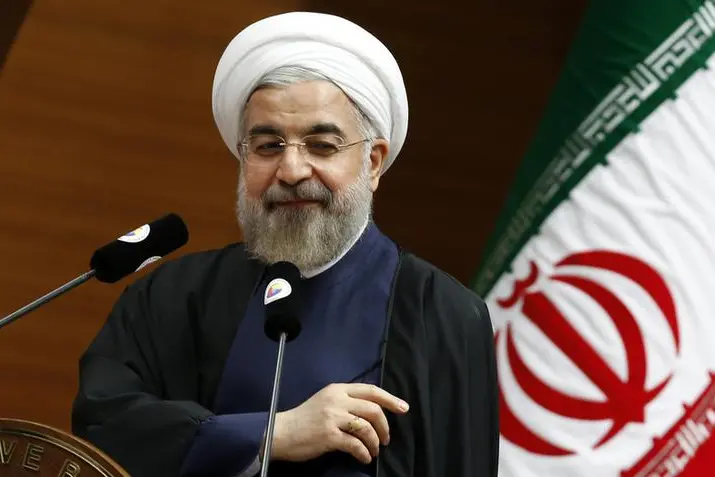PHOTO
ANKARA, April 26 (Reuters) - Iran on Tuesday summoned the Swiss ambassador, who handles U.S. interests in Tehran, to condemn a Supreme Court ruling that almost $2 billion in frozen Iranian assets must be turned over to U.S. families of those killed in attacks blamed on Tehran.
Denouncing the ruling as theft, Iran warned on Monday that it would seek to take the United States to the International Court of Justice at The Hague to prevent the distribution of the money.
"Iran's strong objection over the ruling was conveyed during the meeting between Iranian official and the Swiss envoy. Iranian official underlined that the ruling was against international laws and bilateral agreements," the semi-official ILNA news agency quoted Foreign Ministry as saying.
The Swiss embassy represents U.S. interests in Iran, because Washington has not had a mission there since hardline Iranian students seized American embassy shortly after Iran's 1979 Islamic revolution and took 52 Americans hostage for 444 days.
The U.S. Supreme Court found that Congress had not usurped the authority of the courts by passing a law in 2012 stating that the frozen funds should go toward satisfying a $2.65 billion judgment against Iran won by the families in a U.S. federal court in 2007.
The ruling would affect, among others, the families of 241 U.S. soldiers killed in truck bomb attacks on a U.S. Marine Corps barracks in Beirut in October 1983.
President Hassan Rouhani's hardline critics say the ruling shows the United Sates' continued hostility towards Iran, despite a landmark nuclear deal reached between Tehran and six major powers last year.
Moderate allies of Rouhani hope for better ties between Tehran and Washington, following the nuclear deal and lifting of sanctions in January in exchange for the curbing of Iran's nuclear programme. Iran's top authority has ruled out possibility of normalisation of Iran-U.S. relations.
(Writing by Parisa Hafezi; Editing by Alison Williams) ((parisa.hafezi@thomsonreuters.com; +90 532 176 3452; Reuters Messaging: parisa.hafezi@thomsonreuters.com))
Denouncing the ruling as theft, Iran warned on Monday that it would seek to take the United States to the International Court of Justice at The Hague to prevent the distribution of the money.
"Iran's strong objection over the ruling was conveyed during the meeting between Iranian official and the Swiss envoy. Iranian official underlined that the ruling was against international laws and bilateral agreements," the semi-official ILNA news agency quoted Foreign Ministry as saying.
The Swiss embassy represents U.S. interests in Iran, because Washington has not had a mission there since hardline Iranian students seized American embassy shortly after Iran's 1979 Islamic revolution and took 52 Americans hostage for 444 days.
The U.S. Supreme Court found that Congress had not usurped the authority of the courts by passing a law in 2012 stating that the frozen funds should go toward satisfying a $2.65 billion judgment against Iran won by the families in a U.S. federal court in 2007.
The ruling would affect, among others, the families of 241 U.S. soldiers killed in truck bomb attacks on a U.S. Marine Corps barracks in Beirut in October 1983.
President Hassan Rouhani's hardline critics say the ruling shows the United Sates' continued hostility towards Iran, despite a landmark nuclear deal reached between Tehran and six major powers last year.
Moderate allies of Rouhani hope for better ties between Tehran and Washington, following the nuclear deal and lifting of sanctions in January in exchange for the curbing of Iran's nuclear programme. Iran's top authority has ruled out possibility of normalisation of Iran-U.S. relations.
(Writing by Parisa Hafezi; Editing by Alison Williams) ((parisa.hafezi@thomsonreuters.com; +90 532 176 3452; Reuters Messaging: parisa.hafezi@thomsonreuters.com))





















